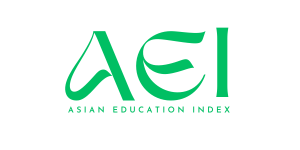Digital Intellectual Educational Resources and Their Classification
Keywords:
educational, theoretical lessons, examplesAbstract
In this article, the use of information technology and computer systems in the educational process gives students the opportunity not only to use graphic illustrations, increase the speed of information transfer and increase the intensity of understanding, but also develop their intellectual abilities. In the information age, many higher educational institutions of the world conduct large-scale scientific research on information technologies, information and communication technologies and their modeling tools, motivational mechanisms for the development of the competencies of many teachers. The emergence of electronic devices and global telecommunication environments has led to the creation of educational software tools using hypertext, multimedia and hypermedia technologies, virtual systems. The use of such systems has made it possible to digitize many electronic programs, reference books, books and other resources in information storage systems. This article presents analytical data aimed at enriching intellectual educational resources with the help of information technologies based on the principles of openness, the network principle, the principle of control, the principle of adaptation, the principle of computer support and the principles of data collection
References
Juraev, R. H., & Karakhanova, L. M. (2021). Model of organization of research activities of 10th grade students in teaching physics and biology. International journal of discourse on Innovation, integration and education, 2(1), 295-299.
Mamarajabov M.E. Технологии цифровой дидактикы. Европейский международный журнал междисциплинарных исследований и управленческих исследований , 2022 (04), 78–84. https://doi.org/10.55640/eijmrms-02-04-16
Yusupova G.Y. Компетентность педагогов: профессиональное развитие, оценочная компетентность и концептуальная основа. Международный междисциплинарный исследовательский журнал Galaxy, 2022, 10 (10), 147–150.
Juraev, R. H., & Ganiev, E. G. (2012). Optimal location of the network of comprehensive schools of the region. Pedagogical Sciences, (3), 15-17.
Juraev, R. H., & Karakhonova, L. M. (2013). Media education as a factor in improving the quality of schoolchildren's education. Lifelong Education: Continuing Education for Sustainable Development, 11(2), 322-323.
Temirov, A. A., and D. S. Habibulloyev., J.G. Ghulomov."Masofaviy ta'limning boshqaruv tizimlari va xizmatlarining umumiy tuzilishi." Academic research in educational sciences 2.1 (2021): 203-212.
Juraev, R., & Tailakov, N. I. (2004). Informatized education environment as a means of increasing the effectiveness of learning. Uzluksiz talim, (9), 3.
Gorbatovskaya, N. A., Muslimov, N. Zh., & Dzhumabekova, G. B. (2015). Influence of legume flour additives on the physical properties of wheat dough. Young Scientist, (6), 141-143.
Muslimov, N., Usmonboeva, M., Sayfurov, D., & Turaev, A. (2015). Fundamentals of pedagogical competence and creativity. Tashkent-2015.
Karimova, N. N., & Muslimov, N. A. (2011). The essence of the competence-based approach in the formation of personal qualities of the future teacher. Young Scientist, (11-2), 162-164.
Temirov, A. A., and H. R. Salimova. "Use of modern information and communication technologies in the training of teachers." Proceedings of the Republican scientific-practical conference" Innovations in the development of information and communication technologies." Karshi. 2019.
Negmatovna, Alimdjanova Dilbar. "The System Of Introduction Of Pedagogical Technologies In The Didactic Processes Of Higher Education On The Example Of Young Psychology." Eurasian Journal of Learning and Academic Teaching 3 (2021): 12-16.
Gulomov, J., and N. Khikmatov. "Analysis of Electronic Information and Educational Resources Aimed at the use of Innovative and Pedagogical Software." International Journal of Development and Public Policy 2.5 (2022): 105-112.
Yusupova, G. "Model of development of model competences of a future teacher of informatics." Экономика и социум 9.88 (2021): 1022-1031.
Yusupova G., and F.E. Mukhamadieva. "Methods and models of distance learning." JournalNX 6.06 (2020): 81-87.
Temirov A.A., Sohobiddinov A. Mamlaktimiz ta’lim tizimida axborot kommunikatsiya va innovatsiyon texnologiyalardan foydalangan holda bilim olish. WORLD SOCIAL SCIENCE (2019): 15-16.
Yusupova G.Y. Современное развитие и повышение личностно-профессионального качества учителя информатики. Spectrum Journal of Innovation, Reforms and Development , 2023, 13, 63–66.
Djuraev, R. X., J. B. Baltaev, and U. B. Alimov. "Methods of Determining Reference Signals for One and Multichannel Signatural Analyzer of Microprocessor Systems." (2018): 1.
Djuraev R.X., S. Y. Djabbarov and T. Q. Toshtemirov, "Analysis Of The Relationship Between The Indicators Of Controllability And Reliability Characteristics Of Data Transmission Systems," 2019 International Conference on Information Science and Communications Technologies (ICISCT), 2019, pp. 1-4, doi: 10.1109/ICISCT47635.2019.9011980.
Adinaev Sh, and A. A. Temrov. "Java dasturlash tilini oʻrgatishda talabalarga mustaqil ish topshiriqlarini berishning namunaviy tuzilmasi." Fizika, matematika va informatika//2021.–2.–B: 16-23.
Siddikov, I.K., Khujamatov, K.E. and Temirov, A.A., 2022. Models for Determination of Maximum Power in Compatible Management of Hybrid Energy Sources. Journal of Ethics and Diversity in International Communication, 2(3), pp.105-121.
Downloads
Published
Issue
Section
License

This work is licensed under a Creative Commons Attribution-NonCommercial 4.0 International License.
User Rights
Under the Creative Commons Attribution-NonCommercial 4.0 International (CC-BY-NC), the author (s) and users are free to share (copy, distribute and transmit the contribution).
Rights of Authors
Authors retain the following rights:
1. Copyright and other proprietary rights relating to the article, such as patent rights,
2. the right to use the substance of the article in future works, including lectures and books,
3. the right to reproduce the article for own purposes, provided the copies are not offered for sale,
4. the right to self-archive the article.













